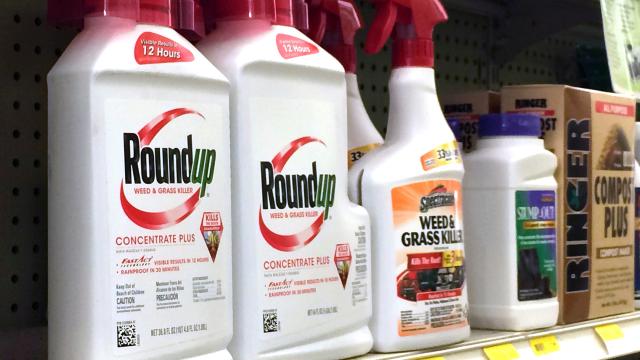You’d probably be uneasy if you heard that your food had been sprayed with something meant to kill other plants. Maybe you’d be even more uneasy if the WHO released a report saying the chemical was a potential carcinogen, but wasn’t certain. If an independent review of the data found the herbicide was safe, you might be able to sleep at night.
Image: AP
In this case, though, emails reveal that the independent review might not be so independent. While Monsanto argued that a review of the data showed that its popular herbicide, Roundup, was safe, a Bloomberg investigation shows that Monsanto scientists played a role looking over and editing drafts of the article. That isn’t how independent science is supposed to work.
The debate revolves around glyphosate, a weed-killer that the World Health Organisation’s International Agency for Research on Cancer “classified as probably carcinogenic to humans” according to a March 2015 document. As we reported at the time, the link probably isn’t worth freaking out about: While there was a link between glyphosate and problems in animals and cells, the review found limited evidence of a link between the pesticide and cancer in humans.
The danger of glyphosate is not what’s important, but instead, it’s scientific integrity that matters. Monsanto claimed that Roundup’s safety had received independent vetting, as Bloomberg reports. One such analysis is a response published in the journal Critical Reviews in Toxicology, where “Four Expert Panels” reviewed the IARC’s assessment. They “concluded that the data do not support IARC’s conclusion that glyphosate is a ‘probable human carcinogen’ and, consistent with previous regulatory assessments, further concluded that glyphosate is unlikely to pose a carcinogenic risk to humans”.
That article itself says that Monsanto paid a consulting firm, Intertek Group Plc, to help make the review, but the researchers “were not directly contacted by the Monsanto Company”, and “Neither any Monsanto company employees nor any attorneys reviewed any of the Expert Panel’s manuscripts prior to submission to the journal”.
But internal Monsanto emails released on August 1 as part of a lawsuit demonstrate the company’s strong involvement in the paper, reports Bloomberg.
The problem here is that data is an easy thing to manipulate or bias, even unconsciously. That’s why potential conflicts of interest are a frequent caveat journalists add to their reporting on scientific papers. In this case, the Monsanto emails demonstrate that not only may a bias have been present, but the interested party itself may have edited an “independent” review.
Monsanto told Bloomberg their edits were only cosmetic, and Critical Reviews of Toxicology said they’d be investigating the matter.
Trust in science and scientists is crucial — scientific publications should be the source of important evidence that we and our governments use to make decisions. Monsanto playing with the system for their own benefit would only worsen folks’ trust in the system.
